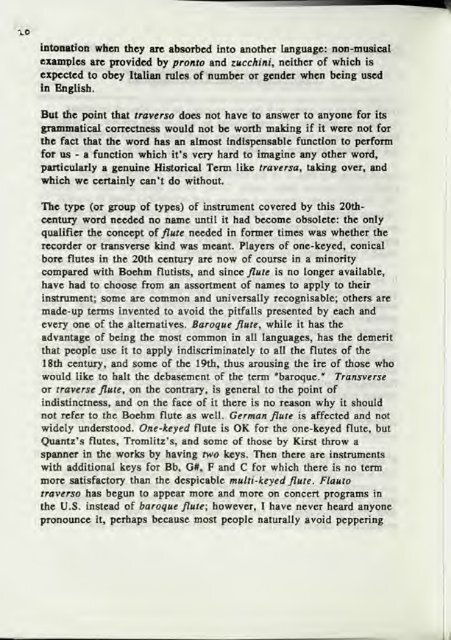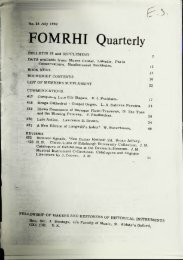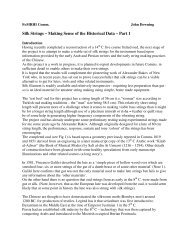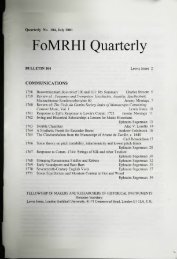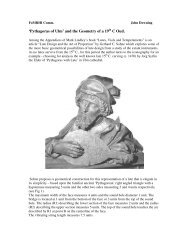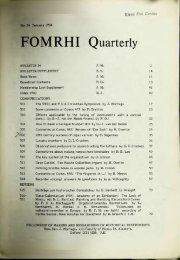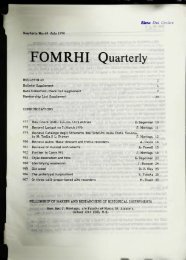FOMRHI Quarterly
FOMRHI Quarterly
FOMRHI Quarterly
Create successful ePaper yourself
Turn your PDF publications into a flip-book with our unique Google optimized e-Paper software.
1.0<br />
intonation when they are absorbed into another language: non-musical<br />
examples arc provided by pronto and zucchini, neither of which is<br />
expected to obey Italian rules of number or gender when being used<br />
in English.<br />
But the point that traverso does not have to answer to anyone for its<br />
grammatical correctness would not be worth making if it were not for<br />
the fact that the word has an almost indispensable function to perform<br />
for us - a function which it's very hard to imagine any other word,<br />
particularly a genuine Historical Term like traversa, taking over, and<br />
which we certainly can't do without.<br />
The type (or group of types) of instrument covered by this 20thcentury<br />
word needed no name until it had become obsolete: the only<br />
qualifier the concept of flute needed in former times was whether the<br />
recorder or transverse kind was meant. Players of one-keyed, conical<br />
bore flutes in the 20th century are now of course in a minority<br />
compared with Boehm flutists, and since flute is no longer available,<br />
have had to choose from an assortment of names to apply to their<br />
instrument; some are common and universally recognisable; others are<br />
made-up terms invented to avoid the pitfalls presented by each and<br />
every one of the alternatives. Baroque flute, while it has the<br />
advantage of being the most common in all languages, has the demerit<br />
that people use it to apply indiscriminately to all the flutes of the<br />
18th century, and some of the 19th, thus arousing the ire of those who<br />
would like to halt the debasement of the term "baroque." Transverse<br />
or traverse flute, on the contrary, is general to the point of<br />
indistinctness, and on the face of it there is no reason why it should<br />
not refer to the Boehm flute as well. German flute is affected and not<br />
widely understood. One-keyed flute is OK for the one-keyed flute, but<br />
Quantz's flutes, Tromlitz's, and some of those by Kirst throw a<br />
spanner in the works by having two keys. Then there are instruments<br />
with additional keys for Bb, G#, F and C for which there is no term<br />
more satisfactory than the despicable multi-keyed flute. Flauto<br />
traverso has begun to appear more and more on concert programs in<br />
the U.S. instead of baroque flute; however, I have never heard anyone<br />
pronounce it, perhaps because most people naturally avoid peppering


